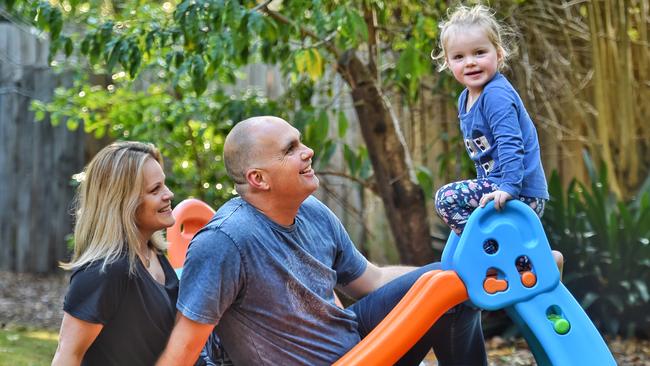Drug used to treat heart attack more effective than current stroke treatments
IN a world-first trial, a drug traditionally used for heart attacks has dissolved clots in stroke patients faster and more effectively than standard treatment, improving their recovery.
VIC News
Don't miss out on the headlines from VIC News. Followed categories will be added to My News.
IN a world-first trial, a drug traditionally used for heart attacks has dissolved clots in stroke patients faster and more effectively than standard treatment, improving their recovery.
Stroke sufferers treated with the drug in the Victorian-led study had less disability and more independence after their initial brain attack.
Unlike the current clot-busting drug used in hospitals which takes an hour to infuse, it can be given in just 10 seconds, saving crucial time.
STROKE SURVIVORS STRUGGLE TO RETURN TO WORK
KIDS GET BETTER SHOT AT STROKE RECOVERY
The drug also restored blood flow to patients’ brains in double the number of patients compared to the older medication.
The trial was led by the Royal Melbourne Hospital and University of Melbourne.
Royal Melbourne Hospital neurologist and head of stroke Associate Professor Bruce Campbell said reopening the blocked artery as quickly as possible after stroke was crucial to preserve brain cells.

In the trial, patients who suffered ischaemic stroke — caused by a clot blocking a blood vessel that supplies the brain — were given the drug tenecteplase before undergoing a surgical procedure to remove the clot.
Their recovery was compared with patients who had the regular drug, alteplase, and clot retrieval.
Of the patients treated with the new medication, 22 per cent had their blood flow restored to the artery, compared with 10 per cent in patients who received the older drug.
One in five didn’t require a clot retrieval after receiving the tenecteplase.
Three months after their stroke, patients who had the new drug had significantly improved outcomes.
“We found that tenecteplase was better for blood flow restoration and for patient’s recovery,” Prof Campbell said.

“It’s an important piece in the jigsaw of putting together practice change for stroke patients.”
Trial co-investigator RMH neurointervention service director Professor Peter Mitchell said tenecteplase was likely to become the preferred medication for clot-dissolving in patients needing a thrombectomy.
In a separate editorial in the New England Journal of Medicine, neurologist Dr Alison Baird from SUNY Downstate Medical Center in New York said a change to practice required further demonstration the drug was superior, convenient, accessible, practical and affordable.
Stroke Foundation CEO Sharon McGowan said the outcomes of the trial of 200 patients were fantastic and needed to be translated into clinical practice.
“This drug has the potential to save lives and reduce acquired disability from stroke,” she said.
WORLD-FIRST STROKE RESEARCH OFFERS HOPE FOR BRAIN INJURIES
After suffering a stroke, fit father Brad Taws, 43, had depression and had to learn to walk and feed himself.
“I had just gotten back on my feet and I had a second stroke while I was making some Salada biscuits,” he said.
Fortunately he was transferred to the RMH and received the drug and a thrombectomy.
Mr Baw has recovered and is thankful for the medical interventions and support from family and friends.
“You get one crack at life, but lucky me — I’ve had three cracks at it and now I’m going to make the most of it,” he said.
This year alone it’s expected there will be one stroke in Australia every nine minutes.


